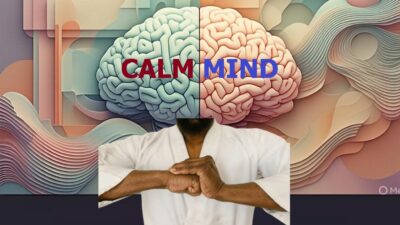Welcome to an exploration of Developing Emotional Intelligence that inspires reflection and practical change. This article lays out a comprehensive yet straightforward path to Developing Emotional Intelligence using simple, everyday strategies backed by consistent effort and self-reflection. Do you ever wonder why some people navigate emotions with ease while others struggle?
By uncovering insightful, actionable steps, you will learn not only what Emotional Intelligence means but, more importantly, how you can cultivate it for better personal well-being and more harmonious relationships.
Table of contents
1. Understanding Developing Emotional Intelligence
Developing a high level of Emotional Intelligence means delving into the core of your emotional experiences and refining how you interact with the world around you. Let’s begin with a clear overview of its key components:
- Self-Awareness: Recognize your emotions in real time. For instance, learning to identify when you feel anxious or joyful is the first step toward understanding your internal world.
- Self-Regulation: Manage your responses effectively. Instead of reacting impulsively, use thoughtful reflection to temper your responses.
- Empathy: Sense and understand the feelings of others. This sensitive awareness helps you form genuine connections and address conflicts constructively.
- Social Skills: Build and maintain meaningful relationships by communicating clearly, resolving disagreements, and fostering a positive environment.
To visualize these components, consider the following table:
| Component | Description |
|---|---|
| Self-Awareness | Recognizing personal emotions and understanding their triggers |
| Self-Regulation | Controlling reactions to emotions with thoughtful responses |
| Empathy | Sensing, understanding, and sharing others’ feelings |
| Social Skills | Navigating interactions and building trust through effective communication |
This framework offers a realistic glimpse into why Emotional Intelligence is central to effective communication and long-lasting personal growth.
2. Practical Strategies to Developing Emotional Intelligence
Developing Emotional Intelligence does not require extraordinary measures. Instead, integrate these hands-on techniques into your daily routine for gradual yet significant progress.
2.1 Self-Awareness: Recognizing Personal Emotions
To enhance self-awareness, begin with these practical steps:
- Daily Journaling: Allocate a few minutes at the end of each day to record your emotions and the situations that triggered them. This habit uncovers patterns and deepens your understanding of your emotional responses.
- Emotion Naming: As you experience emotions, give them precise labels. Instead of simply saying “I feel bad,” differentiate by saying “I feel disappointed” or “I feel uneasy.” This refinement aids in controlling emotions.
- Reflective Pausing: Throughout the day, pause and ask, “What am I feeling right now?” This conscious practice reinforces mindfulness and helps categorize feelings without judgment.
Each of these steps is designed to foster a greater understanding of yourself, forming the solid bedrock upon which Emotional Intelligence is built.
2.2 Self-Regulation: Managing Emotional Reactions
Managing emotions with clarity and calm is key to effective self-regulation. Consider these actionable techniques:
- Breathing Exercises: When experiencing intense emotions, take a few slow, deep breaths. This simple practice helps recalibrate both your mind and body.
- Thoughtful Response: Instead of quickly reacting, give yourself a moment to assess the situation. Ask yourself, “What will help me respond constructively?” This thoughtful pause often leads to more balanced actions.
- Identifying Triggers: Keep a record of situations or interactions that lead to heightened emotions. Once identified, you can plan strategies in advance to manage these triggers more effectively.
Implementing these techniques encourages a measured approach to emotional responses, reinforcing the principles of Emotional Intelligence in everyday life.
2.3 Empathy and Social Skills: Building Compassionate Connections
Achieving high levels of Emotional Intelligence involves nurturing empathy and social skills for better interpersonal dynamics. Engage these strategies:
- Active Listening: Focus entirely on the speaker, and use confirming questions to ensure clarity. This practice not only improves mutual understanding but also validates others’ feelings.
- Perspective Shifting: Make it a habit to view challenging interactions from another person’s perspective. Ask, “How might they feel in this situation?” Such inquiry deepens your empathy and refines your response.
- Expressing Appreciation: Regularly acknowledge and affirm the emotions of those around you. Simple gestures, like thanking someone for sharing their feelings, can build trust and strengthen relationships.
- Conflict Resolution: When faced with disagreements, address issues directly and calmly. Use “I” statements to express your feelings and work collaboratively toward solutions.
These practical steps not only enhance your ability to connect with others but also empower you with robust Emotional Intelligence that transforms everyday interactions.
2.4 Integrating Strategies into a Daily Routine
For sustainable growth in Emotional Intelligence, consistency is essential. Here are some daily practices to help integrate these strategies seamlessly into your life:
- Structured Reflection Time: Dedicate specific moments during the day as “emotion check-ins” where you assess your feelings and consider the effectiveness of your responses.
- Scheduled Feedback Sessions: Engage in regular dialogues with trusted friends or colleagues about your emotional responses and interpersonal dynamics. This feedback provides invaluable insights for improvement.
- Goal Setting: Identify small, achievable milestones related to emotional growth—such as improving your reaction in stressful situations or enhancing your ability to listen actively—and monitor your progress regularly.
- Stress-Reduction Techniques: Incorporate stress-reduction strategies, such as brief mindful reflection (avoiding any associations with traditional practices linked to constrained contexts), to maintain emotional balance throughout the day.
By deliberately incorporating these actions, you steadily enhance your Emotional Intelligence, leading to enduring personal and social benefits.
3. Key Features and Lasting Impact of Enhanced Emotional Intelligence
Cultivating Emotional Intelligence produces profound benefits that echo through various aspects of your life. Consider the following impacts:
- Enhanced Relationships: Improved self-awareness and empathy create a basis for deeper, more trusting relationships. As you become more adept at understanding both your own and others’ emotions, communication improves significantly.
- Stress Reduction: A better grasp of your emotional landscape leads to more effective management of stress. When you know how to regulate your responses, you approach challenging situations with a calmer, more thoughtful mindset.
- Better Decision-Making: With heightened Emotional Intelligence, you are equipped to analyze situations more thoroughly. This clarity enhances both personal and professional decision-making processes.
- Increased Resilience: Regularly practicing these strategies builds mental strength. The ability to bounce back from setbacks and learn from emotional experiences becomes a cornerstone of enduring success.
- Efficiency at Work and Beyond: In professional environments, strong Emotional Intelligence supports teamwork, leadership, and effective problem solving. These skills often translate to improved performance and career satisfaction.
Furthermore, individuals with high Emotional Intelligence tend to experience a greater sense of fulfillment, as they navigate life with balanced self-regulation and empathy.
4. Developing Emotional Intelligence: Final Thoughts and Further Considerations
In summary, the journey to developing Emotional Intelligence is accessible to everyone. By committing to self-awareness, self-regulation, and fostering empathetic relationships, you pave the way for profound personal development. The strategies presented here are practical, actionable, and tailored for diverse lifestyles across the globe.
- Reflect Regularly: Make journaling and reflective pauses a habitual part of your day.
- Practice Mindfulness: Embrace simple breathing techniques and pause before reacting.
- Engage Actively: Develop your social skills through active listening and understanding diverse perspectives.
These methods form a comprehensive toolkit that empowers you to harness the full potential of Emotional Intelligence. Your efforts today set the stage for more resilient relationships, better stress management, and a more purposeful life. As you continue to refine your emotional skills, consider revisiting your progress periodically and adjusting your strategies as necessary.
Moreover, studies and expert guides consistently confirm that even modest improvements in Emotional Intelligence can yield transformative effects on one’s overall quality of life. Whether you are seeking personal growth or enhanced interpersonal connections, these practical steps provide a reliable framework. Embrace the journey with patience and determination, and let each step bring you closer to a more balanced and fulfilling existence.
By keeping these principles at heart and integrating the proven techniques into your daily life, your journey toward enhanced Emotional Intelligence will be both effective and deeply rewarding. Stay curious, practice consistently, and do not hesitate to seek feedback as you refine your emotional skills.
Embrace these strategies today and watch how your enhanced Emotional Intelligence transforms not only your inner world but also the connections you build with those around you.
references
Warning: The provided links lead only to the specified content. Other areas of those sites may contain material that conflicts with some beliefs or ethics. Please view only the intended page.
• wikiHow Article – How to Develop Emotional Intelligence: 9 Key Skills A step‐by‐step guide updated on April 27, 2025, by Jennifer Butler, MSW and Annabelle Reyes.
• Simply Psychology Article – How To Improve Emotional Intelligence : A practical overview updated on November 13, 2024, by Sara Viezzer with expert insights.
• HelpGuide Article – https://www.helpguide.org/mental-health/wellbeing/emotional-intelligence-eq : Expert Guide : An expert guide offering practical tips for better emotional management.






